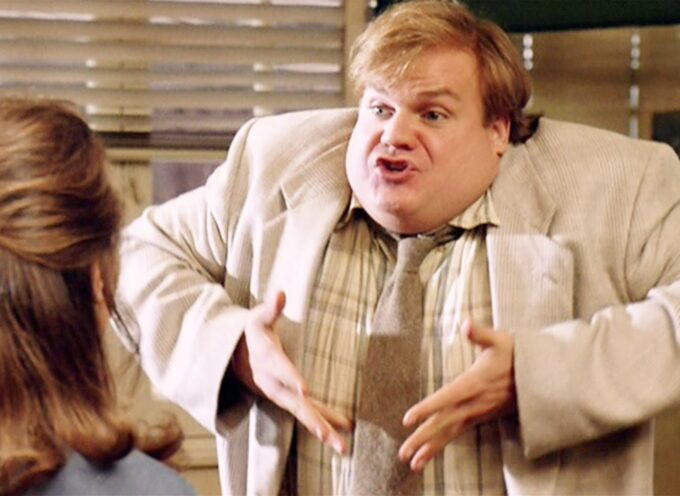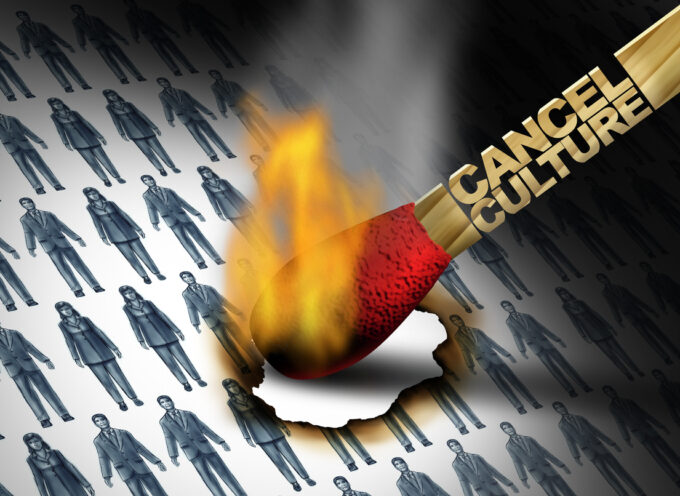In My Life Among the Deathworks, sociologist Philip Rieff argued that the West in general, and America in particular, is in the midst of a historically unprecedented attempt to sever social order from sacred order. Whereas all civilizations historically have understood that sacred order shapes culture and that culture, in turn, shapes society, many of the West’s cultural elite (whom Rieff calls “the officer class”) seek a social revolution in which the influence of Christianity is removed.
According to Rieff, this patently irreligious view of society is not only foolish and destructive, but impossible. “The faith instinct…simply cannot be killed.” Thus, Rieff prophecies that the Western world awaits “a people” who can re-enchant the Western imagination and recover the frightening beauty of the “thou shalt” and “thou shalt not.”
In Christian Scripture, that people is the “people of God,” uniquely equipped to wage war against the darkness of our age. Indeed, our era is dark both in its ideas and desires, and that darkness is emitted largely, though not exclusively, through the lips and pens of Western intellectuals. The people of God must fight these antithetical ideas, tooth and nail, not only from the pulpit but also from the lectern and the printed page. Toward that end, therefore, here is a list of some of the West’s most destructive culture warriors.
Maximilien Robespierre (1758-1794)
Maximilien Robespierre played the leading role in France’s Revolutionary War and its Reign of Terror in which more than 16,000 political adversaries were executed. He was obsessed with dismantling France’s inherited cultural and political arrangement and was indifferent to the human costs of installing his new, ideal Republic. As Dutch historian Guillaume Groen van Prinsterer and others have argued, Robespierre and the French Revolution is exemplary of all secular social revolutions in its willingness to redefine “good” and “evil” along the lines of whatever advances or stalls the revolution, respectively.
Auguste Comte (1798-1857)
Auguste Comte (1798-1857) was a French philosopher who believed that human beings are intrinsically good but perverted by corrupt cultural institutions and national political arrangements. He endeavored to found an atheistic religion that would undermine strong forms of religion and strong forms of the nation-state. With traditional religion and the nation-state thus weakened, wars and tensions would cease. A borderless and pacifistic utopia would ensue. Comte sought to achieve an immanent salvation in which the Christian doctrine of love could be reduced to an abstract humanitarian posture toward human beings in general. With love and virtue stripped of any divine reference point, the soil would be tilled for global unity and goodwill.
Karl Marx (1818-1883)
German thinker Karl Marx’s influence is surpassed only by Jesus, Buddha, Muhammad, and perhaps Freud. Marxism is a secular ideology whose critique of society is inherently totalizing (intruding on every sphere of culture) and radical (seeking to reconstruct from the roots up). It provides a comprehensive worldview and promises an immanent system of salvation. Marxism’s “god” is material equality and its “evil” material inequality. Its salvation is found in Marxist ideology and revolution, its priesthood in the Communist party, its ethic in the relentless drive to achieve a classless society, and its eschatology in a Communist utopia that causes evil to disappear. In reality, everywhere Marxism has been tried, it has been dystopian, not utopian, inducing poverty and suppressing society. Yet, ironically, it remains the “opium” of many intellectuals and a re-emerging contender in American politics and culture.
Friedrich Nietzsche (1844-1900)
German philosopher Friedrich Nietzsche argued that Western humanity is evolving beyond belief in God and therefore must revalue our values. Nietzsche was repulsed by Christianity, especially its virtues of love and humility. He wished to replace them with “hard masculine” virtues of harshness, domination, and suspicion. His philosophy exerted enormous influence of some of the most destructive political leaders (Hitler, Stalin, Mussolini) social scientists (Sigmund Freud, Carl Jung), and philosophers (Jacques Derrida, Michel Foucault) of the twentieth-century.
Sigmund Freud (1856-1939)
Austrian psychoanalyst Sigmund Freud’s investigation of neurosis was really an exploration of authority, as Westerners increasingly managed life without reference to God. In a world thus shorn of transcendence, appeals to divine authority were decreasingly illegitimate. Moreover, Freud noticed at the same time that belief in God was decreasing, instances of psychological neurosis were multiplying. Freud posited a cause-and-effect between desacralization and the proliferation of neuroses but, instead of healing neuroses by resacralizing, he sought to heal them by teaching his patients to manage life without reference to God. Freud’s secular therapeutic ideology has exerted enormous influence on the West, with sociologist Philip Rieff going so far as to argue that Freud’s therapeutic ideology, rather than Marx’s Communism, was the real revolution of the twentieth century.
Herbert Croly (1869-1930)
Herbert Croly’s The Promise of American Life set the agenda for twentieth century progressivism. Having been introduced to Comte’s atheistic “religion of humanity” through his father, David, Croly believed that “democracy must stand or fall on a platform of possible human perfectibility.” Indeed, the “promise” to which Croly’s book refers is America’s unfulfilled potential, its ability to reach within itself and transform the human condition. Politically, therefore, Croly argued that the American people should reject the anthropological pessimism of the Founding Fathers and the proceduralism of the Constitution and instead place their faith in themselves and in charismatic political leaders who personify the national will.
Antonio Gramsci (1891-1937)
Antonio Gramsci was an Italian neo-Marxist who devoted his career to explaining why Marx’s prophecies had proven false. The reason, Gramsci argued, is that capitalist ideas were embedded systemically in the West’s civil institutions. In other words, while Marx believed that economic factors determined other cultural spheres, Gramsci believed that cultural factors influenced the economic ones. If a society wishes to change its economic structure, therefore, it must therefore overthrow its cultural institutions. Oppressors must be oppressed and the privileged must have their privileges revoked. Significant to Gramsci’s vision is his rejection of Christianity. “Socialism,” he wrote, “is precisely the religion that must kill Christianity.” Only by overthrowing Christianity and infiltrating Western cultural institutions can the revolution can succeed.
György Lukacs (1885-1971)
György Lukacs was a Hungarian Marxist who also served briefly as a Cabinet member for the Bolshevik regime in Hungary. While serving, he launched a social program called “Cultural Terrorism” in which he pushed to replace Hungary’s traditional Christian values with new revolutionary values. Included in his program was the weakening of the family unit and the rejection of the Judeo-Christian sexual ethic. Like all serious Marxists, Lukacs jettisoned a transcendent framework for morality, replacing it with a utilitarian ethic in which acts that support the revolution are “good” and acts that oppose the revolution are “evil.”
Theodor Adorno (1903-1969)
Theodor Adorno was a German philosopher and social scientist whose career focused on the authoritarian impulse, which he argued arose from a uniquely Western mix of factors, including Christian sexual ethics, capitalism, and the patriarchal family unit. Among the variables that foster an authoritarian-fascist personality, Adorno argued, are strict adherence to traditional morality, cynicism about human nature, and focused concern about sexual morality. Ironically, but unsurprisingly, Adorno posited a tight connection authoritarianism and fascism but not between authoritarianism and communism.
Herbert Marcuse (1898-1979)
Herbert Marcuse was a German philosopher and social scientist who immigrated to America in 1934. Like his colleague Erich Fromm, Marcuse produced a synthesis of Marxian and Freudian thought. In Eros and Civilization, he argued that society must replace Christian sexual ethics with “polymorphous perversity,” the indulgence of our sensual instincts. For Marcuse, “the fight for life, the fight for Eros, is the political fight.” Marcuse called for the destruction of the West’s oppressive cultural institutions, including especially the patriarchal family. Further, he argued against the traditional Western value of tolerance, arguing that oppressive speech should be oppressed and that Right-wing movements in general should not be tolerated.
In attempting to keep this list on the nearside of unwieldy, any number of other ideological hors-la-loi—such as Martin Heidegger and Michel Foucault—have been omitted. But the list suffices to reveal the sustained attempt to envision our world without any real reference to God. With a world thus shorn of transcendence, our progressive cultural warriors offer a salvation consisting in revolutionary social and political programs.
With Christianity thus displaced, these intellectuals must also jettison a transcendent framework for morality. Inevitably, they posit a consequentialist ethic in which the line between “good” and “evil” is redrawn as a line between “advancing” and “stalling” the arrival of utopia. Further, they relocate “evil,” displacing it from the human heart and placing it firmly—if not exclusively—in corrupt institutions and systems. If the institutions and systems can be overthrown and rebuilt by social scientists and bureaucrats, we will experience the transformation of humanity and the pacification of the social sphere.
Most of the culture warriors on our list also fixate on sexual liberation. Indeed, the real engine for revolutionary politics is sex. The Sexual Revolution is utterly incompatible with West’s traditions and institutions. It must raze—and is razing—the very institutions that could protect us from the encroachments of the State. It uses “sexual liberation” as a mask for its true intention to destroy strong forms of religion and reduce humanity to the status of producer-consumer. In this situation, sexual relationships do not possess intrinsic moral value but rather are the means toward fulfilling one’s desires. Accordingly, most of our critics (but especially Marx, Adorno, and Marcuse) wished to weaken or displace the nuclear family and the Christian church, the two institutions capable of resisting the revolution.
Rieff was right. The world awaits a “people” who can reenchant the world and recover the awe and beauty of the “thou shalt” and “thou shalt not.” Such is a formidable task in our radically disenchanted and morally permissive society. Yet, we know that our society cannot flout creation order forever with impunity. While it once seemed liberating to topple God from his post and live without limits, our society will repeatedly be reminded that a world without God, and without his moral law, is a frightening, rather than a freeing, place.
Subscribe
Never miss a post! Have all new posts delivered straight to your inbox.








Excellent! Sharing this…with one added:
https://en.wikipedia.org/wiki/Jean-Jacques_Rousseau